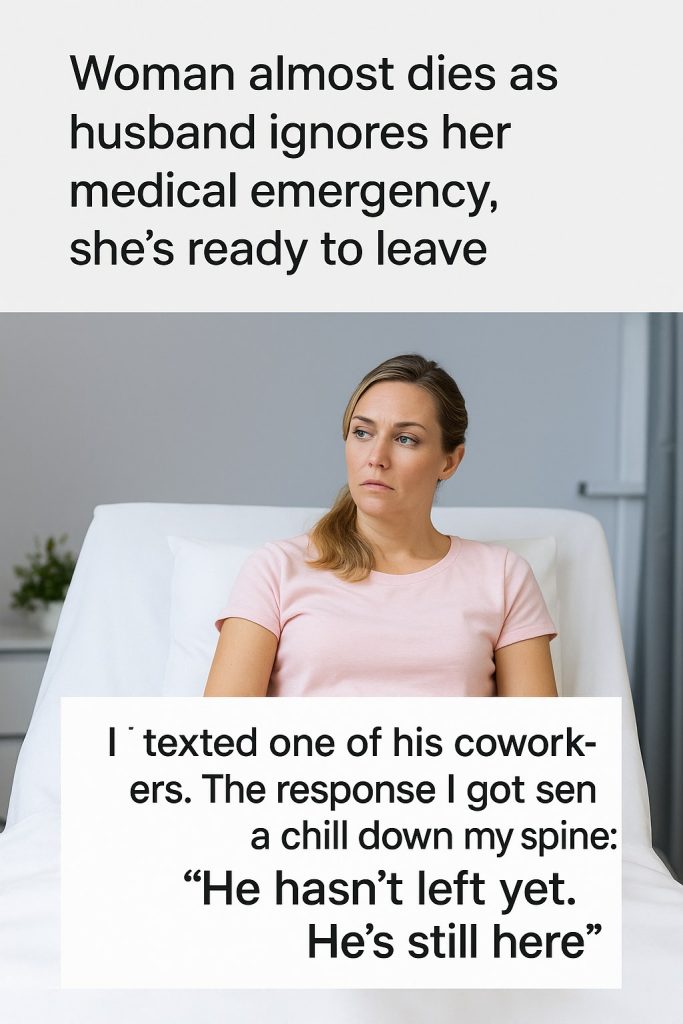A harrowing story has surfaced online of a woman who almost died after her husband reportedly ignored her urgent medical emergency. The incident, which quickly went viral on social media platforms, sheds light on the dangers of neglecting critical health warnings within personal relationships and has sparked widespread conversations about emotional neglect and accountability.
The woman, whose identity remains private, recounted how she fell violently ill at home, exhibiting severe symptoms that warranted immediate medical attention. Despite her desperate attempts to alert her husband, he allegedly dismissed her pleas and refused to seek help or call emergency services. Realizing she could not rely on him, she reached out to one of his coworkers for assistance by text.
The chilling response she received from the coworker — which she later shared publicly — underscored a disturbing level of indifference surrounding her crisis. Though details of the coworker’s message have not been fully disclosed, the woman’s reaction was one of shock and dismay, highlighting how isolated and vulnerable she felt in the moment.
Thankfully, the woman was eventually able to get emergency care and her condition stabilized. Medical professionals confirmed that timely intervention was critical to preventing a fatal outcome. However, the emotional trauma inflicted by her husband’s disregard has left her questioning the future of their relationship. According to her statements, she is now seriously considering leaving him.
This story has resonated with many who have experienced similar domestic neglect or emotional abandonment during health emergencies. Experts say such incidents can be symptomatic of deeper relational problems including lack of empathy, communication barriers, and unresolved conflicts.
“Ignoring a partner’s medical emergency is not just neglect; it’s a profound breach of trust and care,” commented a relationship counselor familiar with similar cases. “It undermines the foundation of partnership and can have lasting psychological consequences.”
Social media users have expressed widespread outrage and empathy, reinforcing the importance of recognizing signs of distress and stepping in to provide support. Many have applauded the woman’s courage in speaking out and planning to prioritize her safety and well-being moving forward.
This incident serves as a stark reminder that medical emergencies demand immediate attention and compassion, especially from loved ones. While the woman is now recuperating, her experience calls for greater awareness about relationship dynamics and the essential role of supportive care during crises.
As conversations unfold online, advocates encourage anyone facing similar challenges to reach out to trusted contacts or professional help. Being heard and supported can make the difference between tragedy and recovery.
For now, the woman’s story is a powerful testament to the resilience of those who refuse to be ignored—even in the most desperate moments—and their right to seek safety and dignity in their relationships.



